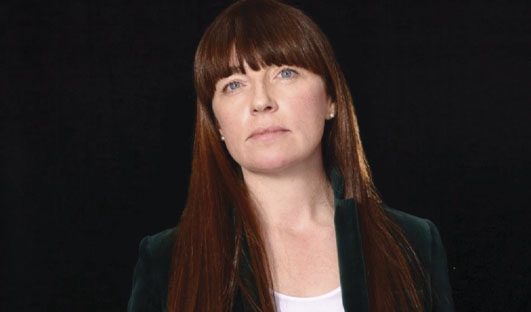TRADE UNION DESK The State’s hands-off approach to childcare must end

All European welfare systems were originally built around the assumption that women are full-time caregivers in the home while men earned a wage adequate to support the family, writes Laura Bambrick, Head of Social Policy and Employment Affairs at the Irish Congress of Trade Unions (ICTU).
From the 1950s onwards, this male-breadwinner model of work and family life began to be replaced by social policies that facilitated women as well as men to work outside the home.
Ireland is unusual in that this shift in official thinking began much later and gender stereotypes remain today. Nowhere is this more visible than in the State’s hands-off approach to childcare.
In all other rich EU countries, childcare is considered an essential public service. In Denmark, Finland, and Sweden, access to full-time care is guaranteed to all children aged one year or younger. A similar right exists in Germany, but publicly-funded centres closing at lunchtime is common making full-time employment difficult for mothers. In Austria, Belgium, and France, childcare is available for the year or two before children start primary school. In Ireland, where private for-profit businesses provide the majority of childcare facilities, there is no legal right to a childcare place.
However, the right to access childcare does not automatically guarantee it is affordable for parents.
While all member states offer some support to reduce childcare fees, there is wide variation in the generosity of the subsidies and the resulting out-of-pocket expense for parents.
In eight of the EU27 states, free or extremely low-cost publicly-funded childcare is available for all children regardless of how much their parents earn or the family type. More typically, childcare subsidies are more generous for low-income, lone-parents and migrant families.
In Ireland, during the Celtic Tiger years, a fourfold increase in Child Benefit was used as a vehicle to help working parents with childcare costs in a way that ensured families with a stay-at-home parent would equally benefit from social spending.
More recently, a new National Childcare Scheme, launched in November 2019, provides universal (paid to all) and targeted (must meet certain criteria) subsidies for children aged between 24 weeks and 15 years using a registered childcare provider, giving parents a statutory right to financial support for childcare fees for the first time.
“The State must recognise childcare as an essential public service for which it is primarily responsible for delivering and resourcing.”
The universal subsidy is paid at a very modest €0.50 per hour, up to a maximum of €22.50 per week per child. Top-ups are however paid up to €145 per week per child. But as the maximum income threshold (€60,000) for a top-up subsidy is the same for one-earner and two-earner households, a working couple earning above low pay (two-thirds the median income) will not qualify.
As a result, the cost of childcare for working couples in Ireland remains the most expensive in the entire EU. On average, they spend €187 per child per week for full day care or 20 per cent of their joint income on fees for two pre-school children. This is a bigger share of the family budget than is typically spent on housing costs (15.7 per cent).
Unsurprisingly, Ireland has one of the lowest rates of working mothers in the EU27 alongside Italy, Greece, and Spain where one-third of women aged between 25 and 54 with children are outside the workforce.

One of the main contributing factors to our crippling cost of childcare is that, unusually, fees are not subject to any regulation by the State in Ireland nor are costs capped for families with multiple children using childcare services.
Business owners point to underinvestment by government. Funding is comparatively very low and markedly below the UNICEF recommended benchmark of investing at least 1 per cent of GDP in early years childcare. However, the Parliamentary Budget Office notes it is not clear what effect the significant increased funding over the past decade has had on costs for parents.
At the same time, professionally qualified staff in the sector continue to be some of the lowest paid workers in the economy and paid far less than their EU counterparts. A longstanding fact only acknowledged by government in the past year with a commitment to introduce legally binding minimum pay rates and terms and conditions for the sector’s 30,000 female workforce.
It beggars belief that the State’s continued absence from childcare is happening against the backdrop of Ireland having the highest fertility rate in the EU27, after France and Sweden. The crisis in childcare is not a niche issue.
The market has failed. The State must recognise childcare as an essential public service for which they are primarily responsible for delivering and resourcing. It is the European way. It is the only way to guarantee accessible and affordable childcare for families and decent pay and conditions for workers.





